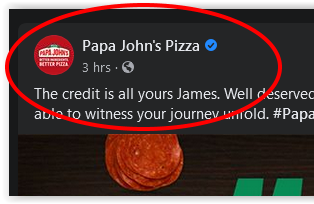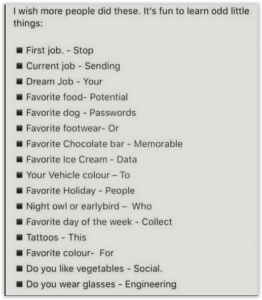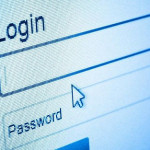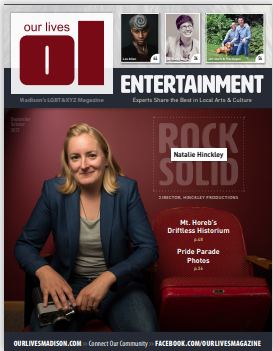There’s more than just our mental and physical health to protect…
The COVID-19 pandemic has presented us with a lot of challenges. Social distancing, hand washing, not touching our face, feelings of isolation, food & supply shortages, and loss of income are just some of the more obvious ones. Amidst all of these stressors, we see stories of people doing extraordinary things to help family, friends, neighbors, and even complete strangers. Many people are putting their own health and safety at risk to help care for others. These people are a testament to human strength, caring, and compassion.
Unfortunately, there is also a darker side. While many people are making incredible sacrifices every day, there are also people looking to take advantage of others. They use the pressure and confusion of the current situation as a distraction while they seek ways to take advantage of us. Often it is under the guise of doing something generous for others.
I know many people are overwhelmed and readily jump on what appears to be an offer of a helping hand or a fun distraction to take our minds off the situation. The difficulties we are facing makes it that much more important that we stay alert and cautious. I’m not suggesting that we become cynical or afraid to accept help. What I am suggesting is that we make smart, thoughtful decisions.
There are different tricks scammers use. Their goal is often to collect personal information for the purpose of identity theft or to hack into your online accounts. Two of the most common ones are fake posts and those fun question games that ask you lots of “get to know you” questions like the name of your first pet.
Think you won’t be tricked? Let me share a couple of examples of seemingly innocuous or even helpful posts that aren’t what they appear to be. These are both from Facebook but could just as easily could be from any social media site.
Fake Posts
 Yesterday I saw this post on Facebook. It says that Papa John’s Pizza is giving 3 free pizzas to anyone that does 3 simple things – completes a short online form, share the post on their page, and put “Done” in the comments of this post. It included multiple pictures of delicious-looking pizzas. Who wouldn’t want 3 free pizzas just for sharing a post on Facebook? At the time I saw this post there were hundreds of thousands of people that had commented “Done.” You could literally see the new “Done” comments coming in one after another after another.
Yesterday I saw this post on Facebook. It says that Papa John’s Pizza is giving 3 free pizzas to anyone that does 3 simple things – completes a short online form, share the post on their page, and put “Done” in the comments of this post. It included multiple pictures of delicious-looking pizzas. Who wouldn’t want 3 free pizzas just for sharing a post on Facebook? At the time I saw this post there were hundreds of thousands of people that had commented “Done.” You could literally see the new “Done” comments coming in one after another after another.
So what’s the problem? Not one of those people stopped for a moment to even question if this was a legitimate offer. And guess what. It isn’t. This is a post by a scammer collecting personal information from people for any number of nefarious purposes such as identity theft or to try to glean your passwords. That is the purpose of the form, to give you a reason to give them personal information like your email address or telephone number or your physical address. I mean, how else can they send you the certificates for the pizza if they don’t know how to contact you, right? It sounds completely plausible.
 So how did I recognize this as a scam? First, it is from “Papa John’s Club” Not Papa John’s Pizza. That immediately raised my eyebrows. What or who is Papa John’s CLUB? Second, Facebook verifies well-known people and businesses and put’s a little blue symbol with a checkmark next to verified accounts. Here’s what the real Papa John’s account looks like.
So how did I recognize this as a scam? First, it is from “Papa John’s Club” Not Papa John’s Pizza. That immediately raised my eyebrows. What or who is Papa John’s CLUB? Second, Facebook verifies well-known people and businesses and put’s a little blue symbol with a checkmark next to verified accounts. Here’s what the real Papa John’s account looks like.
My suspicions aroused, I clicked on the Papa John’s Club name to view their page. Guess what I found. There were only 3 posts on the page. One was for a new profile pic. Another was for a new background. And another was the post I saw. Every one of them was created 6 hrs ago. It was clear that this page had been created the very same day. There was no way this was Papa John’s actual page. And it is unlikely that they created the page for just this post when they’d rather drive traffic to their own main page. This was clearly a scam.
The final piece of it is they have you do their marketing for them. Because you are required to repost the fake post to get the free pizzas, you’ve just spread the word to all 50, 100, 500, 1,000, 10,000 of your Facebook friends. When 500,000 or 1,000,000 people do that for them that’s a lot of free marketing for their scam.
Get to Know Me Games
 You know the ones. This one is much more obvious. While you may think you are simply sharing information about yourself with your friends, you are actually sharing it with the entire world. It feels like a chance to create connection in the midst of so much disconnection. And it is. The problem is that it is also something else.
You know the ones. This one is much more obvious. While you may think you are simply sharing information about yourself with your friends, you are actually sharing it with the entire world. It feels like a chance to create connection in the midst of so much disconnection. And it is. The problem is that it is also something else.
There are many people who want this type of information to be more authentic when they steal your identity. It is also true that many people base passwords on important things in their lives and the answer to these questions can be fertile ground for deducing possible passwords. I think the picture to the left says it best if you read only the answers in the order shown. Thanks to whoever created this!
I encourage everyone to slow down and be thoughtful. We all have enough stressors in our lives right now. There is no need to create more for ourselves just because we didn’t take the time to be mindful.
~~












